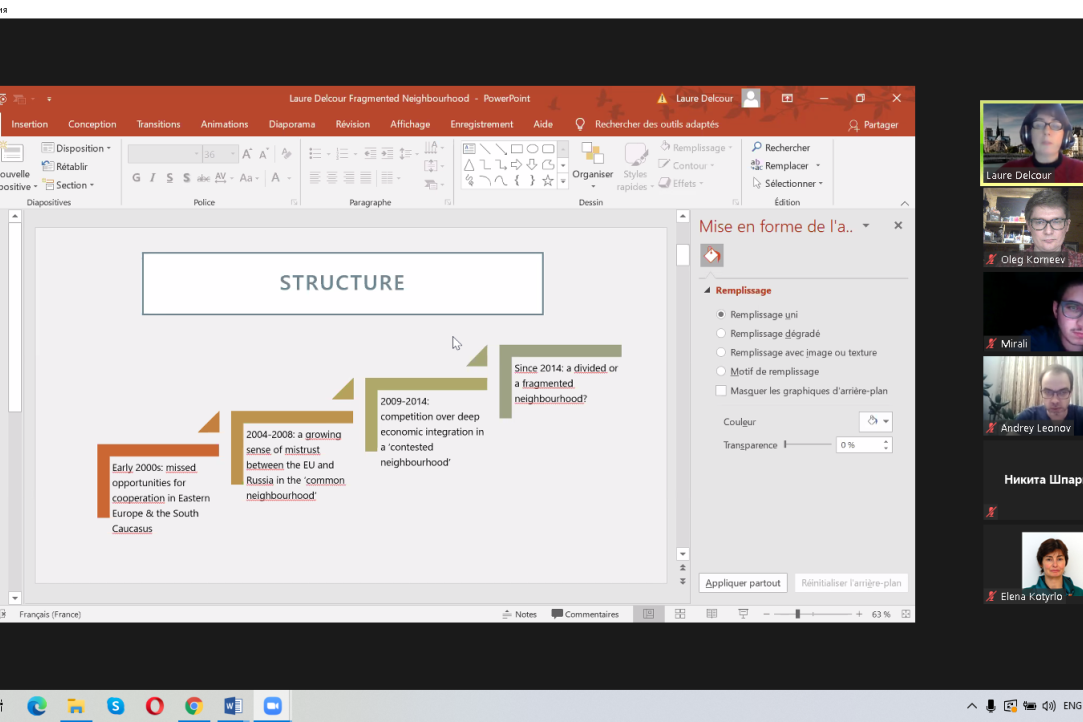Public Lecture 'Eastern Europe and the South Caucasus: a common, contested or fragmented neighbourhood?' by Professor Laure Delcour (University Sorbonne Nouvelle, Paris)
On December 16, 2020, Professor Laure Delcour (University Sorbonne Nouvelle, Paris) gave an online public lecture 'Eastern Europe and the South Caucasus: a common, contested or fragmented neighbourhood?'.

The lecture gathered professors and students from various campuses of HSE University, Plekhanov Russian University of Economics (Moscow), Lobachevsky University (Nizhny Novgorod), University of Bologna, St Petersburg State University, Ca Foscari University of Venice, RUDN University (Moscow), International Islamic University in Islamabad, OSCE Academy (Bishkek), Institute of Europe of the Russian Academy of Sciences (Moscow), Tomsk State University, Free University of Berlin.
Professor Delcour presented her research that will soon appear as a chapter in a new collective volume on EU-Russia relations edited by Tatiana Romanova. She explained that in the late1990-early 2000s, the EU and Russia envisaged cooperating in what would become a “common neighbourhood” after the 2004 EU’s enlargement, namely Eastern Europe and the South Caucasus. However, in the early 2010s the region turned into a “contested neighbourhood” where the EU’s and Russia’s integration projects (the Eastern Partnership and the Eurasian Economic Union) collide. Yet the resulting picture is not a clear-cut division between countries engaged in Russia-driven and EU-led projects. While Russia is able to use its multifaceted leverages with a view to undermining further integration with the EU, it does not offer a fully-fledged alternative model which may prove attractive to Eastern European and South Caucasian countries. Conversely, while unable to either exert influence over conflicts or counter Russia’s security clout the EU remains attractive for many of the in-between countries. The resulting picture is a fragmented neighbourhood, in which EU-Russia interaction and domestic developments are tightly entangled.
This online talk, which stimulated many interesting questions and a fruitful academic discussion, launched a cycle of public lectures organised by the MA Programme “Comparative Politics of Eurasia”. Please follow announcements on the Programme website.

